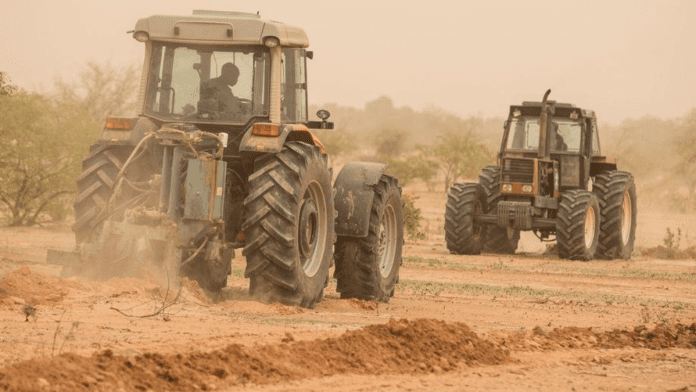News in brief:
-Â The Nigerian federal government has launched the 2023/24 dry season farming campaign in Benue State with a target of cultivating 500,000 hectares of irrigable land by next year, demonstrating a renewed commitment to boost food production.Â
The federal government of Nigeria has kicked off the 2023/24 dry season farming campaign in Benue State, setting a target of 500,000 hectares of irrigable land to be cultivated by next year. It signifies a renewed commitment to boost food production and agricultural growth across the country.
Minister of Water Resources and Sanitation, Joseph Utsev, officially launched the program at Mbaku in Makurdi, Benue State. He emphasised President Bola Tinubu’s directive to maximise the utilisation of 500,000 hectares of irrigable land in 2024. Utsev remarked that all of the nation’s 12 River Basins are actively contributing to the Renewed Hope Agenda.
Speaking further, the minister stated that the federal government has gone into partial commercialisation of the 12 River Basins with efforts ongoing to attract private investment and expertise to the water sector.
Furthermore, he acknowledged the limited capacity of the existing 1,500 hectares at the Lower Benue River Basin Development Authority farm while urging investors to join hands with the government.
Additionally, the government has unveiled various support measures for farmers. Prof. Utsev disclosed that this includes provision of water pumps, improved seedlings, and technical assistance to enhance cultivation and productivity.
The minister emphasised the government’s readiness to support farmers, work with them, and help them overcome their challenges as a potent way of guaranteeing food security for Nigerians.
At the launch ceremony, the basin’s Soil and Geographic Information System laboratories at Lessel Dam was launched. A move that is targeted at further strengthening the country’s agricultural research and planning capabilities.
Additionally, the 5th Batch of graduates from the Federal Government’s Graduates/Youths Empowerment Programme received certificates and starter packs, empowering them to contribute to the agricultural sector.
This dry season farming initiative marks a significant step towards the government’s agricultural revitalisation goals. Different stakeholders have posited that by prioritising irrigation infrastructure, attracting investment, and supporting farmers, the program holds the potential to transform Nigeria’s food landscape and enhance economic prosperity. For example, it can move primary producers away from heavy reliance on rain-fed farming.



